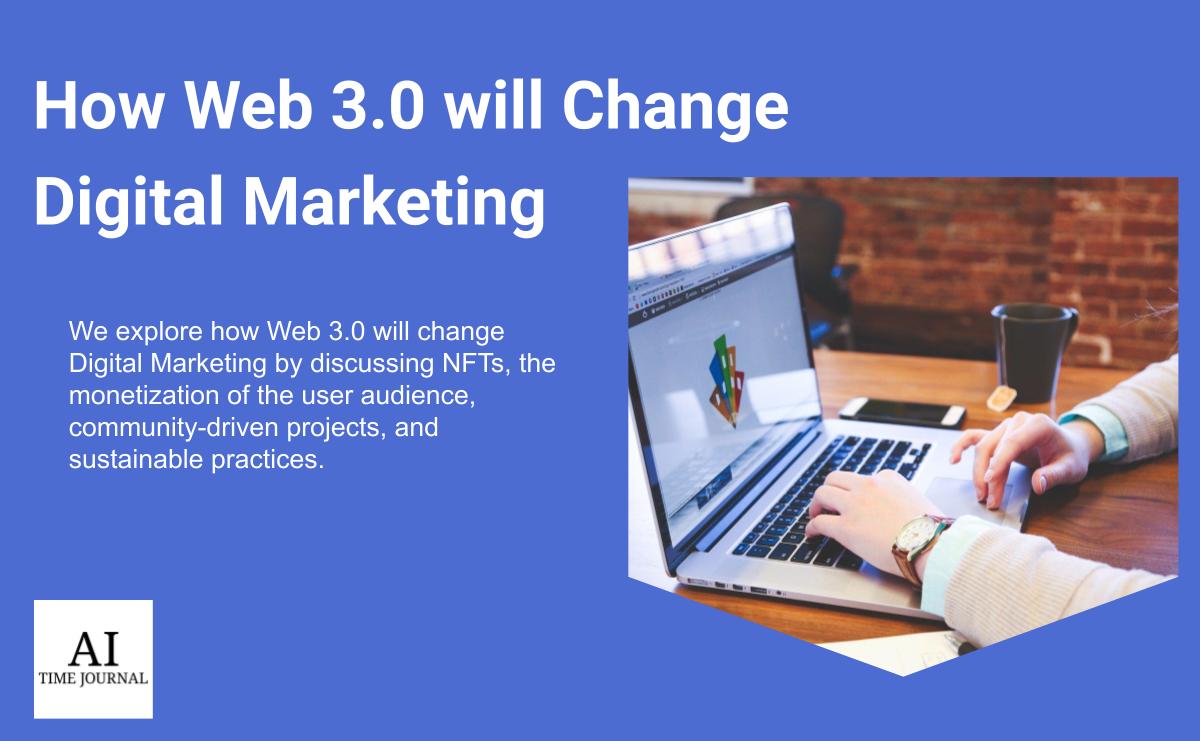
What is Web 3.0?
Many of us are already familiar with Cryptocurrencies like Bitcoin and Ethereum, especially as lucrative albeit volatile investment opportunities. What makes these currencies special, however, is not their return on investment, even if it is astronomical. Rather, it is the technology on which they and the decentralized financial (DeFi) market are built: the blockchain.
Blockchain technology has revolutionized the way digital information is accumulated, shared, and subsequently owned.
Within the context of DeFi, a blockchain is a publicly accessible digital ledger where individual user transactions are stored and encrypted using a unique digital fingerprint (i.e. a ‘hash’). These ledgers are then duplicated and distributed throughout an entire peer-to-peer network where transactions can be verified and approved. Essentially, the need for a middleman (e.g. government or bank) is eliminated. But, why is this important for Web 3.0?
Think of it this way: Web 3.0 is an attempt to democratize the internet and reduce the level of influence corporations, governments, and other powerful entities have over the digital information we consume. Web 3.0 will be able to achieve this vision using blockchain technology, and in doing so, will not only revolutionize several existing industries but also create fundamentally new ones.
Let us now explore how Web 3.0 will affect the digital marketing landscape.
NFTs and the Monetization of the User Audience
NFTs are Non-Fungible Tokens that are stored within and supported by specific blockchain networks (note: mainly Ethereum). NFTs are different from cryptocurrencies because each one represents a unique piece of digital information that accumulates monetary value almost exclusively through social perception. Some readers might already be familiar with the NFT Bored Ape collection of digital artworks. Like cryptocurrencies, NFTs can be traded, however, unlike cryptocurrencies, they cannot be replaced.
Conventional digital marketing techniques have focused on:
- Search Engine Optimization (SEO)
- Email marketing
- Social media marketing
- Influencer marketing
- Paid search advertising
These practices are usually dictated by various corporations, search engines, or social media platforms’ financial interests and goals. Moreover, they rely heavily on the use of massive user-specific datasets that outline personality traits, consumer habits, social and political interests, and much more. As an effect, large companies spend enormous amounts of money on the acquisition of user data for the purposes of digital advertising.
If, however, companies were able to advertise their products or services by creating specific NFTs that represent their missions, they may be able to attract the attention of users while generating profit. If a user purchased an NFT, they would arbitrarily inflate the value of the company while also creating a lucrative financial opportunity for themselves.
In other words, companies can profit from their own marketing techniques; a phenomenon that was previously unattainable until the advent of Web 3.0. Blockchain technology has enabled a marketplace for digital content that for-profit institutions can exploit in their favor without undermining the autonomy of the user/consumer.
More Community-Driven Projects and Engagement
The decentralized nature of Web 3.0 will lead to the destruction of information monopolies within the digital landscape while emphasizing the preservation of user identity. Whether this happens now or within the next few decades will be dictated primarily by two phenomena: the extent to which governments regulate the use of blockchain technology and societal pressure.
The former will limit how widespread blockchain technology is and will likely force for-profit institutions to outsource the development of said technologies to smaller companies or groups of individuals.
These companies/groups, however, will require incentives that range beyond money, especially since financial power within a decentralized digital landscape will be fundamentally limited. As such, digital marketers will need to adopt both a business-to-business and business-to-consumer mindset to maximize their corporate profits and public outreach.
On the other hand, the latter will force corporations to include the general public in their marketing campaigns, especially since blockchain technology will increase user privacy, accountability, and transparency. Digital Marketers will have to realize that they can no longer pursue insidious marketing techniques, like targeted personality-based advertising, without maintaining a minimum level of transparency.
Web 3.0 will allow major corporations and individual citizens to begin working together with the goal of optimizing the user experience on a global, decentralized scale. Users and companies will therefore be held accountable for their practices, particularly when they aim to generate profit.
Increased Focus on Sustainable Practices
Blockchain technology has inspired innovative projects like Smart Contracts, the Digital Asset Marketplace (DAM), peer-to-peer carpooling, and certain aspects of the Metaverse. Projects such as these have the potential to revolutionize some of the following industries:
- Banking
- Transportation
- Healthcare
- Education
- Digital Marketing
However, the widespread use and implementation of Blockchain technology throughout various industries, including digital marketing, comes at a cost: blockchains require huge amounts of energy to function.
In 2021, The Harvard Business Review estimated that Bitcoin transactions alone account for 0.55% of the entire planet’s electricity production. This may seem like a small number, but when considering the systematic benefits of using blockchain technology from a corporate standpoint, in conjunction with the development of Web 3.0, it becomes apparent that sustainability warrants serious consideration.
If digital marketers want to reap the benefits of Web 3.0 while also implementing scalable marketing techniques, they will need to develop a new set of skills whereby they can view the projects they pursue in terms of their energy opportunity cost. The acquisition and implementation of user data can be better thought of as an investment: whatever data is not relevant now will likely be relevant in the future, and its cost will be justified.
If, however, a company were to deploy an NFT collection as a for-profit advertising campaign, they would have to be able to balance the launch of the collection with the energy costs it ensues by running on the blockchain. As companies scale,’ these costs will increase exponentially, a point that digital marketers will have to carefully consider.
